"The Three E's"
Is Losing Weight a Balancing Act?
Eating vs. Exercise vs. Emotions
Some kids want to know:
“can you loose weight without exercising just eating healthy and drinking lost of water?”
The short answer is yes. One can lose weight 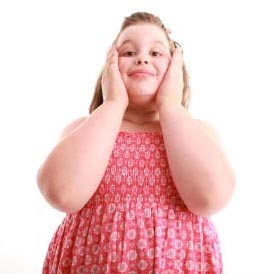 if “eating healthy” means that they consume less calories than they burn up. In fact, for some kids who are severely obese and have a hard time moving, eating less may be necessary before they can start any significant exercise. As most kids know, losing weight depends on the difference between calorie input (eating) and calorie output (exercise). In addition, we believe a third factor, emotions, can be just as important as eating and exercise when trying to lose weight. if “eating healthy” means that they consume less calories than they burn up. In fact, for some kids who are severely obese and have a hard time moving, eating less may be necessary before they can start any significant exercise. As most kids know, losing weight depends on the difference between calorie input (eating) and calorie output (exercise). In addition, we believe a third factor, emotions, can be just as important as eating and exercise when trying to lose weight.
Let's look at each of these three E’s in turn.
(Find the hidden "E" and click on it in each section for more helpful tips. There are a total of 7 "E's" for you to find.)
1. Eating
The number of calories you consume affects your weight. Instead of suggesting a specific diet, we simply recommend that kids eat the same foods but use smaller portions when they start making diet changes. However, some kids note that they can’t control themselves when eating certain foods (usually foods high in fat, sugar, or salt) and end up eating more than they 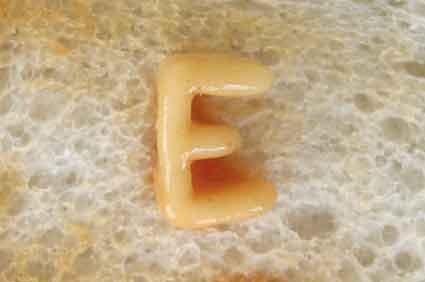 had planned. "E" Sometimes, the calorie intake of these junk foods alone exceed the number of calories needed per day! In these cases, there may be some level of food addiction, which we talk about under emotions. "E" For most kids, reducing their intake of calories is more easily accomplished than burning the same amount of calories through exercise. had planned. "E" Sometimes, the calorie intake of these junk foods alone exceed the number of calories needed per day! In these cases, there may be some level of food addiction, which we talk about under emotions. "E" For most kids, reducing their intake of calories is more easily accomplished than burning the same amount of calories through exercise.
2. Exercise
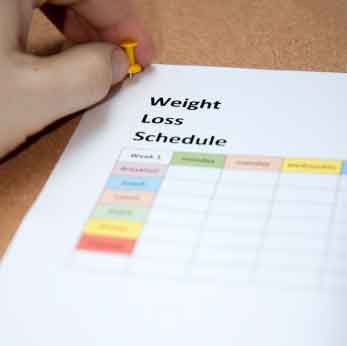
Many kids don’t want to exercise when losing weight. This is okay. Exercise does not have to be strictly sit-ups, running around a track, following an aerobics tape, or lifting weights. Although some kids may like a structured plan for exercise, other types of physical activity can achieve the same results.
There are activities that do not focus on exercise as the end result, but do burn extra calories in the process for fun or to accomplish a task. For example, the goal in cleaning your room is to organize your space. In the process however, you burned extra calories by moving around. "E" Dancing to music by your favorite band would be another way to get activity, without making it seem like it is exercise. For some kids this may help make exercise more meaningful.
 "E" Playing frisbee or badminton with family and friends is another way to burn calories without making exercise seem like work. These group oriented activities help people bond because they spend time together and create memories from funny mistakes, triumphs, and teamwork. People also have an easier time exercising in groups or with friends when they have someone to talk to and help motivate them. Some kids may prefer moving around alone, such as dancing in their room or working a daily newspaper route by using their bike or walking. "E" Playing frisbee or badminton with family and friends is another way to burn calories without making exercise seem like work. These group oriented activities help people bond because they spend time together and create memories from funny mistakes, triumphs, and teamwork. People also have an easier time exercising in groups or with friends when they have someone to talk to and help motivate them. Some kids may prefer moving around alone, such as dancing in their room or working a daily newspaper route by using their bike or walking.
3. Emotions
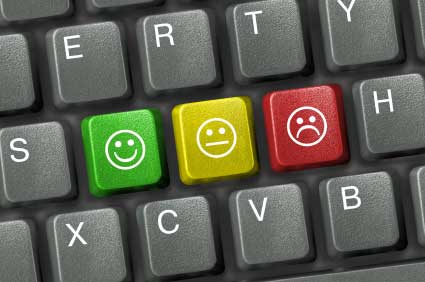 Our feelings can influence what and how much we eat by "over-riding" basic sensations of fullness, satisfaction, or hunger. For some people, emotions such as stress and depression may take away their appetite and they lose weight. For others however, unpleasant feelings can have the opposite effect and they gain weight. Our feelings can influence what and how much we eat by "over-riding" basic sensations of fullness, satisfaction, or hunger. For some people, emotions such as stress and depression may take away their appetite and they lose weight. For others however, unpleasant feelings can have the opposite effect and they gain weight.
Common emotions that kids list as reasons for overeating include: boredom, anxiety, stress "E", guilt, depression, sadness, shame, and loneliness. If you can identify any unpleasant emotions influencing when and how much you eat, then you can be more effective in losing weight. Many kids report they eat a lot of junk food after getting home from school due to a stressful day or while on summer break because they are bored. Using food repeatedly in this way to prevent oneself from ever feeling bad, can lead to a food addiction in some kids like a drug or alcohol addiction. "E" Addressing addiction may take more than just will power. This is because many of these addictive, often processed foods change the brain’s chemistry by increasing a body chemical called serotonin, which makes people feel extra good. Recognizing this problem and finding other ways to make ourselves feel good is key.
Do you recognize any of the following signs of a food addiction in yourself?
-
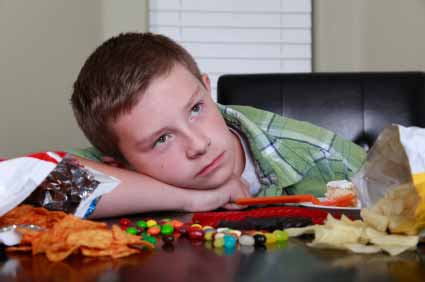 Obsessed with thoughts about food Obsessed with thoughts about food
-
Overeat because the food is there
-
Eat fast so you can eat more
-
Eat until you feel sick
-
Feel guilty when you overeat
-
Feel a need to eat greater and greater amounts
-
Do not like the feeling of being hungry
-
Hide food so you can eat in secret away from other people
-
Lie to others about amount of food eaten
-
Rapid weight gain and/or difficulty moving around due to weight gain
-
Avoiding activities because of embarrassment about weight
-
Eat to relieve worry or stress, depression, anxiety, or other unpleasant feelings
-
Eating excessively despite hate being fat and aware of it’s negative impact on health
-
Experiencing withdrawal symptoms such as intense cravings, headaches, uneasiness, irritability when first removing addictive foods from your diet
 If you can relate to some of the above signs and symptoms of food addiction, visit “Saying Goodbye to the Food Drug” tip for strategies to kick this habit. If you can relate to some of the above signs and symptoms of food addiction, visit “Saying Goodbye to the Food Drug” tip for strategies to kick this habit.
The effectiveness of weight loss using only one, two, or all three E’s - Eating, Exercise, Emotions - depends on your preferences and circumstances. You may only want to address one E to start, but eventually using all three E’s will most likely prove to be the most successful way to lose weight. "E"
Image courtesy FreeDigitalPhotos.net
Make
this a healthy week!
(Click
here for past week's tips)
|

 if “eating healthy” means that they consume less calories than they burn up. In fact, for some kids who are severely obese and have a hard time moving, eating less may be necessary before they can start any significant exercise. As most kids know, losing weight depends on the difference between calorie input (eating) and calorie output (exercise). In addition, we believe a third factor, emotions, can be just as important as eating and exercise when trying to lose weight.
if “eating healthy” means that they consume less calories than they burn up. In fact, for some kids who are severely obese and have a hard time moving, eating less may be necessary before they can start any significant exercise. As most kids know, losing weight depends on the difference between calorie input (eating) and calorie output (exercise). In addition, we believe a third factor, emotions, can be just as important as eating and exercise when trying to lose weight.
 had planned.
had planned. 
 Our feelings can influence what and how much we eat by "over-riding" basic sensations of fullness, satisfaction, or hunger. For some people, emotions such as stress and depression may take away their appetite and they lose weight. For others however, unpleasant feelings can have the opposite effect and they gain weight.
Our feelings can influence what and how much we eat by "over-riding" basic sensations of fullness, satisfaction, or hunger. For some people, emotions such as stress and depression may take away their appetite and they lose weight. For others however, unpleasant feelings can have the opposite effect and they gain weight. Obsessed with thoughts about food
Obsessed with thoughts about food  If you can relate to some of the above signs and symptoms of food addiction, visit
If you can relate to some of the above signs and symptoms of food addiction, visit